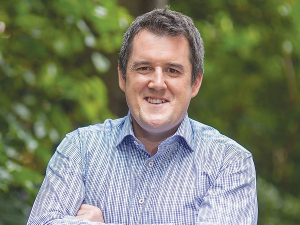Scientists are looking at new methods to enhance the ability of New Zealand's soils to lock up cadmium and, thereby, prevent it from entering plants and subsequently the food chain.
At current levels, New Zealand's soils bind cadmium strongly and this reduces its transfer to plants (and, ultimately, food).
However, as cadmium levels increase, the soil's ability to bind further additions will decrease and increased amounts of cadmium will enter agricultural products.
Scientists from the Faculty of Agriculture and Life Sciences at Lincoln University are currently working with Solid Energy New Zealand and the Swiss Federal Institute of Technology on the project.
Michael Simmler, Switzerland and Lisa Ciadamidar, Spain have undertaken laboratory and greenhouse trials at Lincoln University and identified that partially oxidised low calorific value lignite (commonly referred to as humate), obtained from some coal mining operations, may reduce the cadmium threat when added to soils.
"It was exciting to discover that under certain conditions, the addition of lignite to soil greatly increased the soil's ability to bind cadmium and, in some cases, reduced its uptake by plants," says Simmler.
"The final effectiveness of lignite in this role will depend on many soil characteristics and farm management. In particular the soil's pH (acidity), mineral and organic constituents that are critical factors in controlling the effect of lignite addition on cadmium binding and soil fertility."
Associate Professor, Brett Robinson, who is the team leader for this research, emphasised that this technology was not yet ready for use.
"Our aim is to work with New Zealand and overseas partners to develop a suite of strategies to maintain New Zealand's soils ability to deliver safe food products for the global market," he says.
"Not doing so could detrimentally affect our export earnings and tarnish the image that the country aims to portray in overseas markets.
"Once completed, this research would benefit other countries who are also working to ensure they produce quality food products.
"In the meantime, we need to find the best rates of lignite addition and develop management strategies for the whole range of different soil types throughout New Zealand," he said.
Simmler and Ciadamidar now want to extend these preliminary results by undertaking field trials.
"While lignite addition does not remove cadmium from the soil, it may increase the time available for the development of low-cost cleansing technologies, which are currently not available," they say.
Cadmium is a toxic heavy metal that can accumulate in agricultural soil and cannot be broken down by natural processes. Some fertilisers contain cadmium as an impurity and this is difficult to remove before application.
Cadmium has recently been flagged by MAF as an emerging environmental issue in New Zealand.










